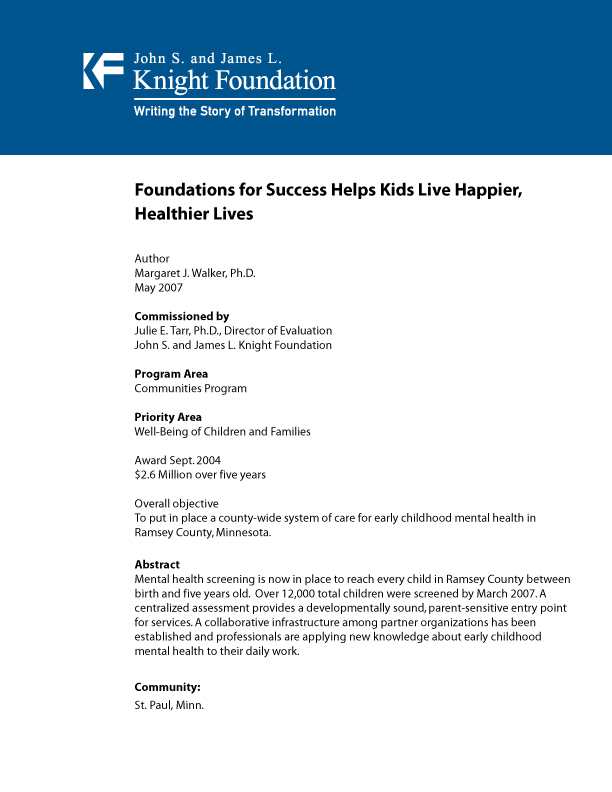INITIATIVE DESCRIPTION
Foundations for Success (FFS) is a five-year initiative among 100 community partners in St. Paul, Minn. to put in place a countywide system of care for the mental health of young children backed with a $2.6 million Knight Foundation grant. Launched in 2005, the initiative supports screening, delivery of new services, training, evaluation and project coordination – mental health services that were previously unavailable or in short supply for young children, from birth through age five.
ASSESSMENT PURPOSE & APPROACH
Key Questions
- Has FFS successfully changed the life chances for children with mental health problems?
- What makes FFS a transformative initiative?
- What difference is FFS making?
- What can be learned from this transformation-in-progress?
Approach: This mid-point assessment documents the experiences and perceptions of 31 professionals, practitioners and parents involved with FFS.
PROJECT FINDINGS
- Mental health screening and centralized assessment – FFS is now able to reach every child in Ramsey County between birth and five years old through institutionally integrated, developmentally sound, parent-sensitive screening. Much of the first two years of the Knight grant was used to coordinate partners, establish procedures, train professionals, and develop reliable data collection. As of January 2007, over 5,300 children had been screened, with that number surging as families prepare for next school year.
- Collaborative infrastructure – Dispersed leadership and work group responsibilities have resulted in a shared understanding of the vision for a continuum of care that provides focus for on-going program development and policy advocacy. Collaboration across various organizations and the school system has established FFS as a model in the field.
- Focus on continued learning – FFS professionals regularly apply new concepts and approaches to their work, many of which have been introduced by the findings of the ASQ:SE screening tool and the DC 0-3 diagnostic scheme.
- Much work still lies ahead – Despite significant progress, obstacles include lack of depth in the intervention continuum, unique barriers in successfully engaging minorities and parents in general, and fragility in public funding resources.
